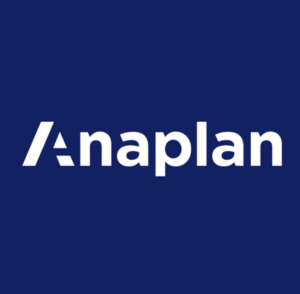Innovative Employee Stock Ownership Plans for the Modern Workplace

Innovative Employee Stock Ownership Plans for the Modern Workplace
In today’s dynamic business environment, companies strive to empower their workforce and foster a sense of collective ownership. One groundbreaking approach that achieves these objectives is the implementation of Employee Stock Ownership Plans (ESOPs). By granting employees a stake in the company, ESOPs cultivate pride, camaraderie, and productivity. Moreover, ESOPs offer financial advantages for employers, including tax incentives that reduce costs while providing long-term benefits for employees. This article offers an overview of ESOPs, explores the benefits for both employers and employees and highlights key considerations when establishing such plans.
The Definition of Employee Stock Ownership Plans (ESOPs)
Employee Stock Ownership Plans (ESOPs) represent a unique form of employee benefit plan that allows employees to own shares in their employer’s company. ESOPs are designed to align the interests of employees and shareholders, incentivizing employees to work diligently and contribute to the company’s success.
ESOPs can take various forms, typically involving the contribution of company stock directly into an employee’s retirement account. This can be achieved through cash contributions or by granting existing shares directly to employees. Depending on the specific employee stock ownership plan regulations, employees may be eligible for tax deductions on their retirement account contributions.
Benefits of ESOPs for Employers and Employees
ESOPs have been in existence since the 1970s, offering employers an avenue to reward employees and enhance productivity. The advantages of ESOPs extend to both employers and employees, including tax benefits, increased employee motivation, and enhanced financial stability.
For employers, ESOPs provide the opportunity to offer employees an ownership stake without using cash or additional resources. This is particularly beneficial for companies aiming to attract top talent or retain current staff despite financial constraints. Furthermore, ESOPs offer tax breaks, enabling companies to reinvest the saved funds into other areas of the business.
Employees, on the other hand, enjoy several advantages through ESOPs. By owning shares in their company, employees become more invested in its success, fostering motivation and dedication. Additionally, when employees leave the company, they receive a payout based on the value of their shares, serving as a financial cushion during unemployment or retirement.
Types of ESOPs
ESOPs present businesses with a means to reward and motivate employees while granting them a stake in the organization. Various types of ESOPs exist, each with its advantages and considerations, necessitating a thorough understanding of the most suitable option for individual businesses.
The leveraged plan is the most common type of ESOP, whereby the company borrows money to purchase its shares and holds them in trust for employees. The loan is typically repaid using cash flow generated by the business or profits from share sales. This approach allows employees to accumulate equity without upfront investments or personal debt. Moreover, employers enjoy tax benefits by deducting interest payments related to their contributions, subject to specific requirements.
Alternatively, the non-leveraged plan does not require external borrowing or additional incentives beyond matching employee contributions up to a specified limit per year. This plan offers flexibility and can be tailored to suit the unique needs of the business.
Considerations for Companies when Establishing an ESOP
Implementing an employee stock ownership plan (ESOP) requires careful consideration of various factors to ensure its successful integration. Among the primary considerations are the costs associated with providing shares to employees. Companies must have sufficient funds and a willingness to allocate them for this purpose. Additionally, while tax advantages may accompany ESOPs, there may be additional costs related to setup and maintenance that necessitate a comprehensive evaluation of the company’s financial standing.
Structuring the ESOP within the company’s operations and culture is another vital consideration. Well-thought-out plan terms are essential to ensure fairness, compliance with regulations such as those set by the Securities & Exchange Commission (SEC), and effective communication with stakeholders. Clear communication about the purpose, benefits, and potential risks of the ESOP program is crucial for employees to make informed decisions about their participation.
Tax Implications Associated with ESOPs
While ESOPs offer numerous benefits, it’s important to consider the tax implications for both employers and employees. Funding an ESOP requires careful consideration of whether to issue new shares or purchase existing ones, both of which may have tax consequences. Employers may be subject to taxes on gains from the sale of shares, and the funds used to finance an ESOP may have additional tax considerations that should be explored with the guidance of a tax professional.
Employees who receive stock through an ESOP also need to be aware of their tax obligations. Profits from selling stock are generally taxed as ordinary income at the individual’s marginal rate. However, if employees hold onto their shares for more than one year before selling them, they may qualify for more favourable long-term capital gains treatment. Additionally, any dividends received from owning company stock may also be subject to taxation based on various factors.
Conclusion
Employee Stock Ownership Plans (ESOPs) represent a powerful tool for companies to engage and motivate their employees while providing them with a stake in the organization’s success. By fostering a sense of ownership and alignment of interests, ESOPs can enhance productivity, attract and retain top talent, and provide tax-efficient equity-based compensation.
Employers can reap the benefits of ESOPs, including offering ownership stakes without immediate cash outlay, enjoying tax advantages, and achieving financial stability. Employees benefit from increased motivation, potential financial gains through share ownership, and a sense of ownership and pride in the company they work for.
When establishing an ESOP, companies should consider factors such as costs, plan structure, compliance with regulations, and effective communication with employees. Understanding the tax implications for both employers and employees is also critical for making informed decisions and maximizing the advantages of ESOPs.
Ultimately, ESOPs present a unique opportunity to create a culture of ownership, collaboration, and shared success within organizations. By embracing ESOPs, companies can build a stronger and more resilient workforce while driving long-term growth and prosperity.
Lucas Noah is a tech-savvy writer with a solid academic foundation, holding a Bachelor of Information Technology (BIT) degree. His expertise in the IT field has paved the way for a flourishing writing career, where he currently contributes to the online presence... Read more




